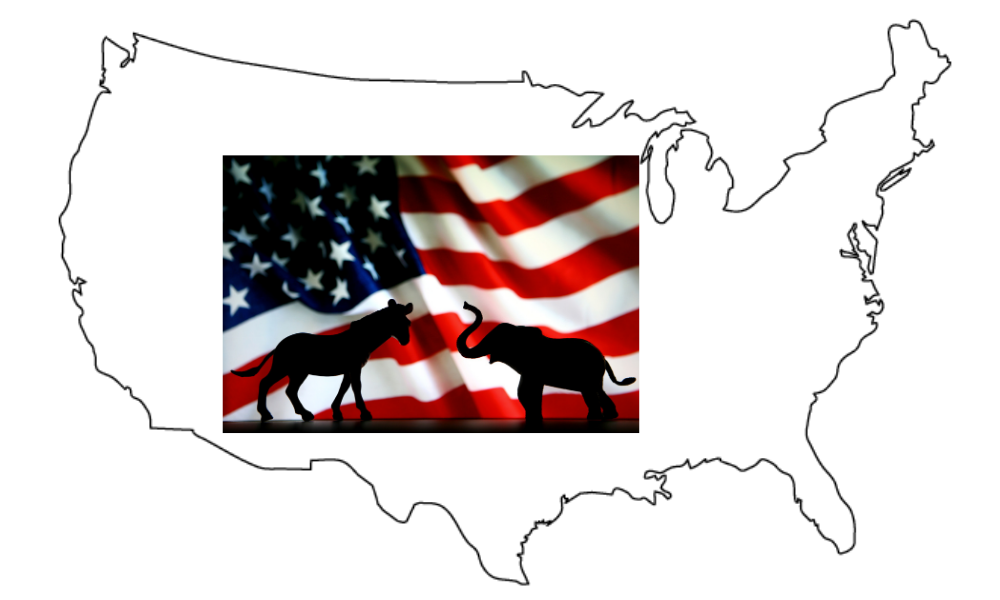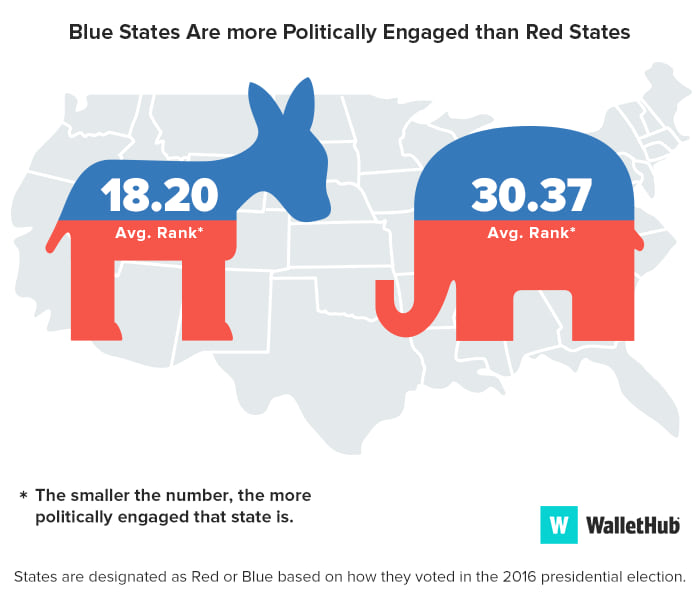
With Election Day coming up and only 61.4% of the voting age population having voted in the 2016 presidential election and 53.4% in the 2018 midterm, every vote will count,
Personal-finance website WalletHub recently released its report on ‘2020’s Most & Least Politically Engaged States.’
In order to determine where Americans are most involved in politics, WalletHub compared the 50 states across 11 key indicators of political engagement including “percentage of registered voters in the 2016 presidential election” to “total political contributions per adult population.”
Among the findings:
- Maine has the highest share of citizens who actually voted in the 2016 presidential election, 72.68 percent, which is 1.5 times higher than in Hawaii, where the percentage is lowest at 47.27 percent.
- Maine has the highest share of citizens who actually voted in the 2018 midterm elections, 65.60 percent, which is 1.5 times higher than in Arkansas, where the percentage is lowest at 42.60 percent.
- There is a 0.6 correlation between the overall ranking of the states for political engagement and the level of education in each state (measured as the percentage of the population with at least a bachelor’s degree).
- Blue states are more politically engaged, with an average ranking of 18.20, compared with 30.37 for Red states (1 = Best).

Education Ranking
As far as top ranking states go:
| 1 | Maine | 76.93 |
| 2 | Washington | 76.32 |
| 3 | Colorado | 71.86 |
| 4 | Maryland | 71.70 |
| 5 | Wyoming | 70.31 |
| 6 | Utah | 68.40 |
| 7 | Oregon | 65.73 |
| 8 | Montana | 65.16 |
| 9 | Virginia | 63.74 |
| 10 | Massachusetts | 63.52 |
GDP per Capita Ranking
And the bottom 10 states were determined to be:
| 40 | Texas | 42.02 |
| 41 | Indiana | 41.20 |
| 42 | South Carolina | 40.80 |
| 43 | South Dakota | 40.42 |
| 44 | Kentucky | 40.02 |
| 45 | Tennessee | 39.25 |
| 46 | West Virginia | 35.12 |
| 47 | Alabama | 33.52 |
| 48 | New Mexico | 32.67 |
| 49 | Mississippi | 31.67 |
| 50 | Hawaii | 29.27 |
So, where did the Peach State fall?
Georgia ranked 36th in the nation for their level of engagement.
Maneesh Arora, Assistant Professor of Political Science at Wellesley College says Georgia is making it harder for people to vote and says that will translate to lower turnout in November:
Some states consistently have (relatively) high turnout rates such as Maine, Minnesota, and Oregon and I don’t expect that to change this year. The pandemic will likely influence turnout rates in other states. In states that have an existing infrastructure for vote-by-mail such as Oregon and California, turnout rates won’t be affected that much. Other states like Massachusetts and Michigan which are taking the pandemic seriously and working to develop that infrastructure will also likely not see drops in turnout due to the pandemic. Indeed, voter turnout was at a record high in the MA primary this year. Other states like Georgia which are not only not adapting to the pandemic but also making it more difficult for people to vote, will likely see low turnout rates.



Chattooga Schools
Berry Professor Publishes Original Short Story Collection

Chattooga Public Safety
Most Recent Chattooga County Food Service Inspections

Chattooga Schools
GNTC names 2026 GOAL, Rick Perkins Award winners

Chattooga Local News
When Summerville Needed Him, Kevin Godfrey Showed Up — Again

Bulloch Public Safety
01/20/2026 Booking Report for Bulloch County

Bulloch Public Safety
01/12/2026 Booking Report for Bulloch County

Bulloch Public Safety
01/09/2026 Booking Report for Bulloch County

Bulloch Public Safety
01/26/2026 Booking Report for Bulloch County

Bulloch Public Safety
01/05/2026 Booking Report for Bulloch County





